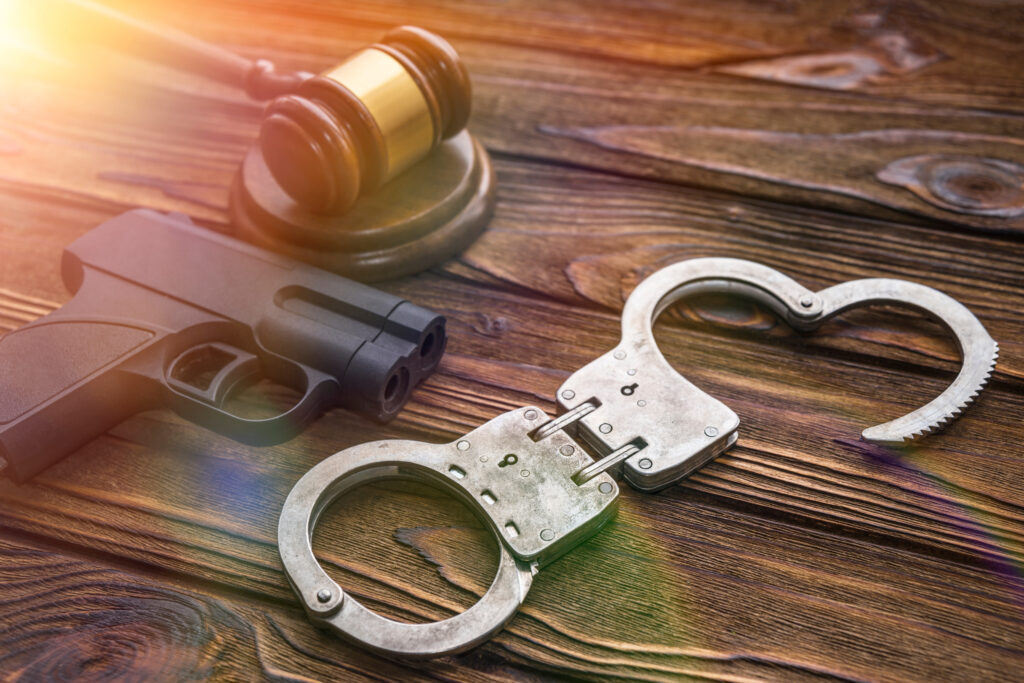Navigating the Complexities of Firearm Use and Possession in New Jersey: What You Need to Know
September 13, 2023

Navigating the gun laws of New Jersey can be like walking through a minefield; each step you take must be precise and well-informed. That said, this guide aims to provide a comprehensive overview of New Jersey’s stringent firearms regulations. It’s crucial to note that while this guide is informative, it is by no means a substitute for professional legal advice. If you find yourself in a situation that requires understanding or interpreting New Jersey’s complex gun laws, it’s vital to consult with a qualified attorney.
How to Legally Purchase a Firearm in New Jersey
To say that New Jersey sets the bar high for legal gun ownership would be an understatement. Unlike some neighboring states, New Jersey requires potential gun owners to undergo a rigorous, time-consuming process involving multiple steps:
- Age Requirements: Be 18 years old for long guns and 21 for handguns.
- Firearms Purchasers Identification Card (FPID): You must possess a valid FPID, a process that entails fingerprinting, background checks, and character references.
- Pistol Purchase Permit: For handguns, you’ll need a valid pistol purchase permit from your local police department.
- Certificate of Eligibility: This certificate is mandatory for all firearms purchases.
- National Instant Criminal Check System (NICS) scan: A clean NICS scan is the final hurdle to legal gun ownership.
Transporting Firearms Legally in New Jersey
Once you’ve cleared the initial hurdles, don’t think you can carry your new firearm wherever you please. Laws governing the transport of firearms in New Jersey are equally as strict. Always be aware of the most current legislation, as these laws are subject to change. Here are some instances that qualify as a legal purpose for transporting a firearm:
- Moving a newly purchased firearm to your residence.
- Transporting a broken firearm to a gunsmith for repairs.
- Going to and returning from a licensed gun range.
- Relocating to a legal location for hunting or trapping.
In all these situations, the firearm must be securely fastened, unloaded, and separate from its ammunition. When transporting a gun in a vehicle, it must not be accessible from the passenger compartment. If it has to be in the passenger area, it must be secured in a locked container.
The Intricacies of Concealed Carry in New Jersey
Perhaps one of the most talked-about aspects of New Jersey’s firearms regulations is its approach to concealed carry. Technically, there is a permitting process in place. However, these permits are rarely issued to private citizens. Usually, they are reserved for civilian security personnel or armored car drivers. Even if you’re one of the few to obtain this elusive permit, remember: New Jersey has zero reciprocity agreements with other states, making your New Jersey permit useless beyond state borders.
When it comes to demonstrating “the need to be armed,” the bar is set incredibly high. Often, the authorities require a documented, imminent threat to one’s safety, usually determined on a case-by-case basis.
What Happens If You’re Caught?
Caught carrying a concealed weapon without a permit? Under the Graves Act, expect a mandatory minimum sentence of five years in prison. The courts are not allowed to show leniency in these cases. Even if you believe that you’re wrongly accused, securing specialized legal counsel is not just advised; it’s crucial for your future.
Other Types of Firearms and Ammunition
Surprisingly, New Jersey’s law extends its broad definition of firearms to include BB guns, which require the same permits and undergo the same legal scrutiny as traditional firearms. Airsoft guns and paintball markers are not usually categorized as firearms but can be treated as such if used in the commission of a crime.
When it comes to ammunition, soft lead hollow point bullets are generally illegal, with a few exceptions based on the nature of their use, such as hunting or target shooting. Armor-piercing bullets are prohibited under both New Jersey and Federal law.
Final Thoughts and Next Steps
In a state with some of the strictest gun laws in the U.S., understanding your rights and obligations is paramount. This guide offers an extensive look into New Jersey’s complicated gun laws, but it’s no substitute for personalized, professional legal advice. Should you find yourself in a situation that involves firearms in New Jersey, consult a qualified New Jersey weapons charge attorney who specializes in firearms law as your first course of action.
By staying informed and vigilant, you can navigate the complexities of firearm use and possession in New Jersey. Keep abreast of changes in legislation and always exercise your rights responsibly.
Contact The Law Office of John B. Brennan Today For a Free Consultation About Your Weapons Offense
Understanding your rights and responsibilities regarding firearms in New Jersey is not only crucial—it’s non-negotiable. The laws are stringent, and the penalties for even minor infractions can be life-altering. If you find yourself facing weapons offenses or have concerns about firearm possession or use in New Jersey, it’s essential to have qualified legal representation by your side.
That’s where The Law Office of John B. Brennan comes in. With years of experience, including a background in prosecuting gun offenses, we are uniquely positioned to offer insightful, thorough legal guidance. Our firm specializes in assisting those who find themselves entangled in the complexities of New Jersey’s firearm laws, aiming to minimize your risk and protect your constitutional rights.
While this article provides a valuable introduction, there is no substitute for personalized advice tailored to your specific situation. Don’t let a minor oversight jeopardize your future. Contact us today for a consultation, and let us be your guide through New Jersey’s intricate legal landscape. We are committed to providing you with the knowledge and representation you need to navigate these challenging circumstances.
